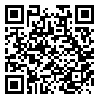Volume 11, Issue 1 (spring 2007)
jwss 2007, 11(1): 451-460 |
Back to browse issues page
Download citation:
BibTeX | RIS | EndNote | Medlars | ProCite | Reference Manager | RefWorks
Send citation to:



BibTeX | RIS | EndNote | Medlars | ProCite | Reference Manager | RefWorks
Send citation to:
R. Hashemi, B. Dastar, S. Hassani, Y. Jafari Ahangari. Effect of Dietary Protein Level and Feed Restriction on Performance and Body Temperature of Broilers Subjected to Heat Stress . jwss 2007; 11 (1) :451-460
URL: http://jstnar.iut.ac.ir/article-1-676-en.html
URL: http://jstnar.iut.ac.ir/article-1-676-en.html
Abstract: (19425 Views)
The effect of dietary protein level and feed restriction on performance, body temperature and hematological values was evaluated, using Ross 308 broiler chicks under heat stress. For this purpose, three dietary treatments were fed to broilers during 21 to 42 days of age. Two treatments consisted of diets with protein levels recommended by NRC, 1994 and 85% of NRC recommendation and were fed ad-lib during the experiment. The third treatment was a feed restriction group that was fed diet with protein level recommended by NRC, but chicks were deprived of feed for 6 hours during heat stress challenge. Birds had free access to water. Results indicated that lowering protein content or feed restriction had no significant effect on body weight gain (P>0.05). Feed restriction resulted in significantly decreased feed intake, improved feed conversion and energy efficiency ratio, and decreased body temperature after heat stress challenge at 24 and 32 days (P<0.05). Lowering protein of diet and feed restriction resulted in significantly decreased protein intake, improved protein efficiency ratio and increased hematocrit and blood uric acid (P<0.05). Sex had no significant effect on body temperature and hematological values (P>0.05). Heat stress significantly increased body temperature, hematocrit and glucose and uric acid values.
| Rights and permissions | |
 |
This work is licensed under a Creative Commons Attribution-NonCommercial 4.0 International License. |





